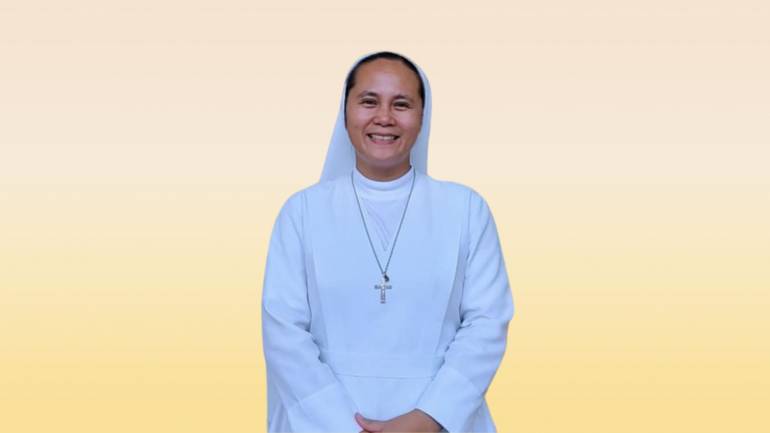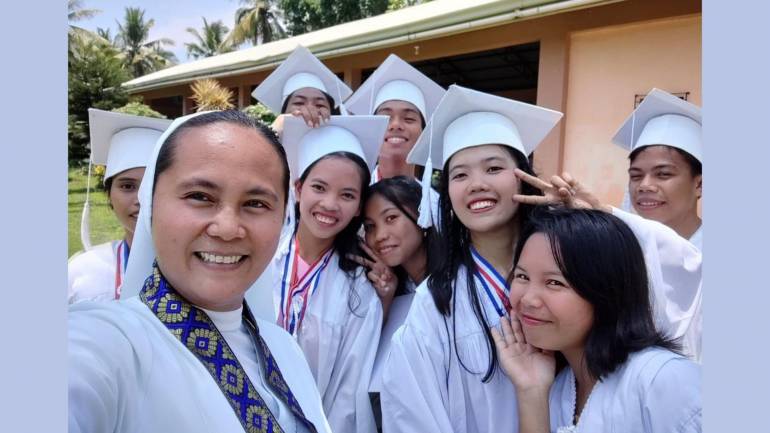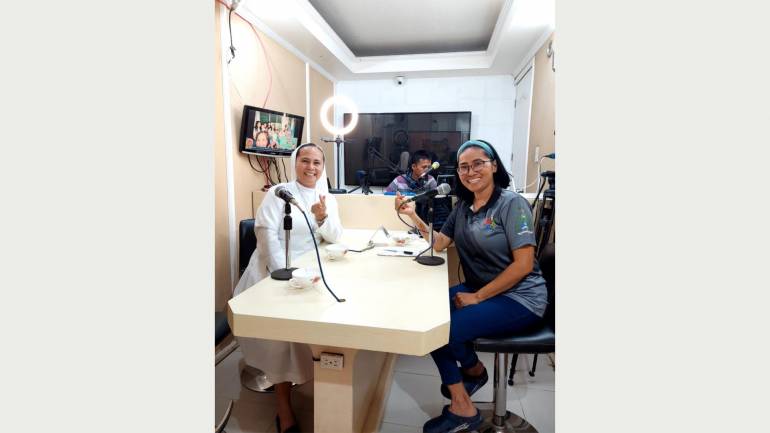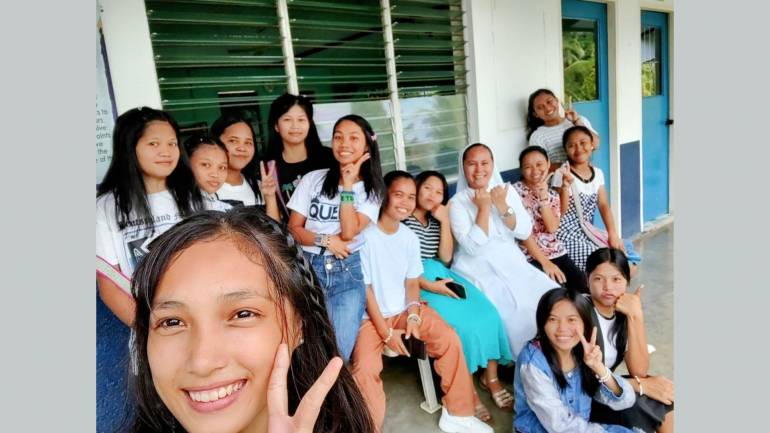“Be brave, dare to be different,” says a Don Bosco sister

“Becoming a nun was not yet in my mind, but I was somehow attracted," Sr. Leila Mendoza Montero, FMA
As the youngest of twelve siblings, her family was divided in support when she expressed interest in pursuing a religious life after graduating high school. However, she embraced her father’s advice: “Try it while still young so you would know.”
Sr. Leila Mendoza Montero, FMA, with her eyes glowing in joy, shared her vocation story in a radio interview with this author on Saturday during the vocation month observed in the Apostolic Vicariate of Calapan.
FMA stands for the Italian "Figlie di Maria Ausiliatrice" or Daughters of Mary Help of Christians, a female religious institute founded by Saint John Bosco and Saint Maria Domenica Mazzarello in 1872. They are present in 98 countries worldwide, 22 of which are in Asia.
Montero, 38, was recently appointed as the technical directress of Mary Help of Christians School (MHCS) of the Salesian Sisters of Don Bosco in Barangay Parang, City of Calapan, Philippines.
MHCS is an agricultural school and an accredited assessment center of the government’s Technical Education and Skills Development Authority.
Attracted to the “White Habit”
Twenty-two years ago, Montero, then a young girl, volunteered as a catechist with the sisters while studying at Jose J. Leido, Jr. Memorial National High School.
“I liked their white habit and their joyful disposition,” she recalls.
Two decades later, she continues to accompany young people as she once was, and the joy she first experienced continues to deepen in her vocation journey.
In her fourth year of high school, Montero was actively involved in both her parish and community: as a member of the choir and as a youth councilor in her village of Baruyan, City of Calapan.
She began assisting the sisters in the choir in Grade 8 and later became a volunteer catechist. “Every Sunday, I went to their Sunday school, which served children in Barangay Calero at the Mangyan Mission compound, the first community of the sisters in the island province upon the invitation of then-Bishop Warlito Cajandig, and the adjacent village of Salong."
From the ages of 14 to 16, Montero was closely involved with the sisters. “Becoming a nun was not yet in my mind, but I was somehow attracted. Young as I was, I still did not know what I wanted. Yes, I was a volunteer, but not as a nun. I wanted to become a social worker, a teacher—things like those,” said Montero.
Looking back, she believes that all her experiences and the people she encountered played significant roles in her vocation journey.
“Dare to be different, be brave to get in touch with yourself, be open to your feelings and thoughts,...Don’t lose hope, dream of the future, and say yes to what God wants!” Sr. Leila Mendoza Montero, FMA
Supportive Father, Treasure Box of Discernment
A significant influence in Sr. Leila Mendoza Montero's discernment journey was her supportive father, fondly known as "Brod Crispin." He served as a lay minister for 25 years at San Lorenzo Parish in Masipit village, where Montero fondly remembers the fatherly guidance of Fr. Cenon Garcia as parish priest.
“My father was supportive and assuring. He said, 'If you like, you try while still young, to see what is in your heart, what you like,’” Montero recalled. “Of course, he was an authority in the family. I claimed those words as there was mixed support within the family. Whatever God shows you, even if you decide to come back, our doors are open.”
She likened her discernment process to a "treasure box" that God wanted her to explore. “If I’m not meant for the religious life, God has His ways to make this known. At least I welcomed His invitation.”
Like most teenagers, Montero had a love life. She had suitors, and her mother even suggested she date one, thinking her pull to religious life was due to frequent interactions with the sisters. Montero did have a boyfriend, though briefly.
“I was focused on my goal. When I told him I would enter the convent, he was supportive and said he wouldn’t compete with God,” said Montero, now in her 13th year as a perpetually professed religious and a full-fledged FMA. She is also grateful to the young people she encountered, who helped strengthen her vocation.
Sr. Nancy Esmero, FMA, also played a pivotal role by simply asking, "Why not enter the convent?"
Charism for the Youth
“Now, I realize the Lord has given me what I wanted: to assist and educate young people, which is the mission of the Daughters of Mary Help of Christians: accompanying the young,” said Montero. “It is a shared mission with the Salesian Fathers of Don Bosco to save souls through education.”
Montero acknowledged that everything she experienced had a purpose. Working in catechism, she saw the sisters sharing the Word of God, which deepened her understanding of Jesus.
“As I worked with them, I got to know more about Jesus through the sisters and their welcoming presence. I was happy to see that,” she said.
Montero has been assigned to various FMA schools for basic education, technical/vocational courses, and college. She has taught and coordinated youth programs in Laguna, Cebu, Pampanga, and Manila.
What she loves about the congregation is its preventive system, which permeates their education style: reason, religion, and loving-kindness.
“Reason involves talking with young people, helping them understand and learn about the Word of God and themselves, rather than just spoon-feeding. Religion aims to strengthen their faith, to love Jesus and Mary,” Montero explained, grateful for the examples set by her parents, who were also members of Couples for Christ.
Her vocation journey, like any state of life, had its challenges, especially coming from the province with its unique culture.
“Every stage of the formation process is a purification for someone wanting to become a nun, just as it is for priests. The most important thing is an open disposition, especially to the Will of God. We cannot deceive our journey,” she said, citing her formators.
Recognizing the challenges of this generation, especially the influence of social media, Montero advises young people: “Dare to be different, be brave to get in touch with yourself, be open to your feelings and thoughts, name them, because there are people around to help like the formators. Don’t lose hope, dream of the future, and say yes to what God wants!”











